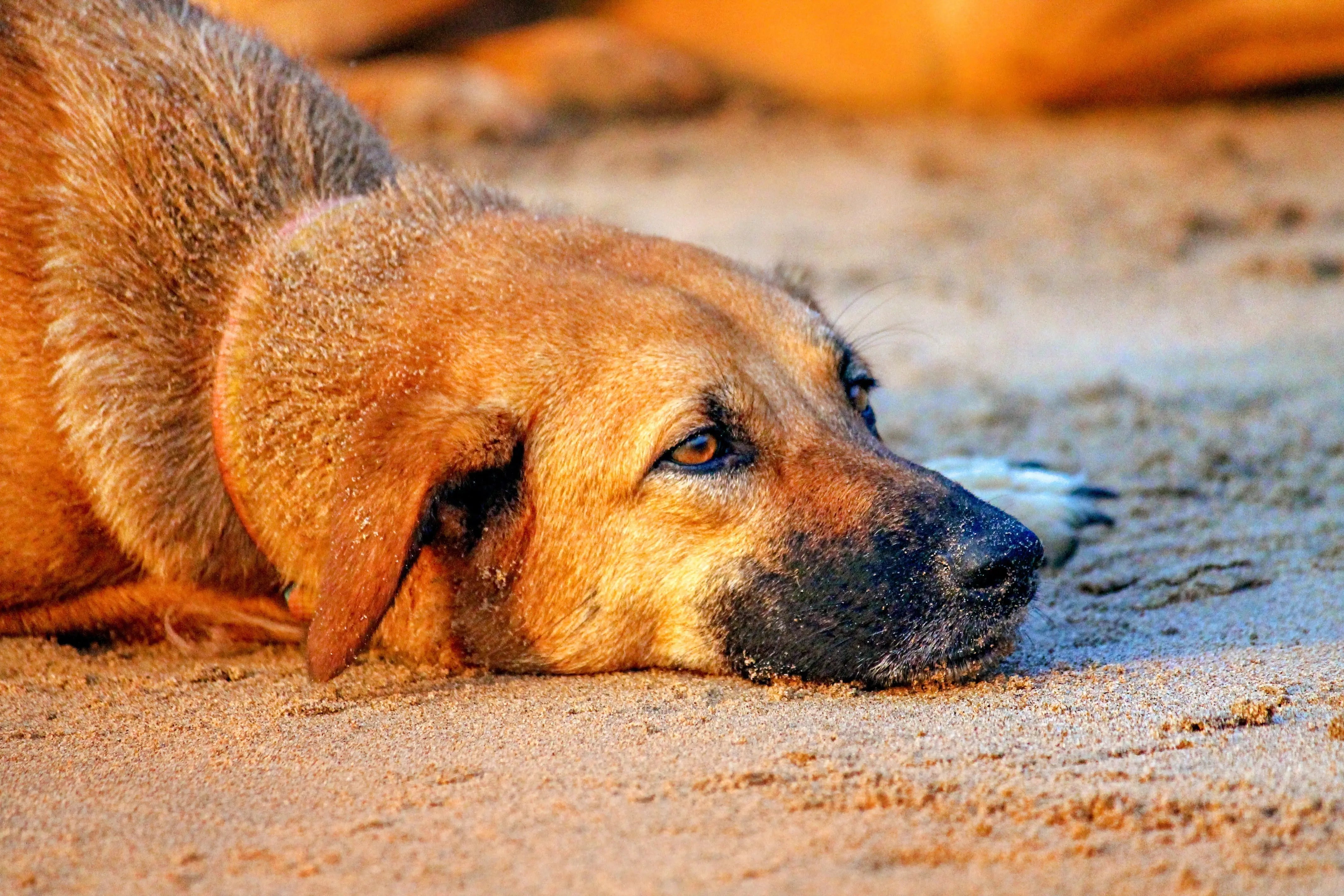At the beginning of the Independence Day week, India erupted into protests against the order for the indefinite detention of more than 8 lakh innocent lives — the stray dogs of its capital city. But this was no ordinary declaration. The directive to round up strays, catch them, and detain them permanently in faraway dog shelters was given to the Government of the National Capital Territory of Delhi (the NCT), the Municipal Corporation of Delhi (the MCD), the New Delhi Municipal Council (the NDMC), and the authorities of NOIDA, Ghaziabad, Gurugram, and Faridabad by the Supreme Court of India, the highest court of law in the land. That made it dangerously close to being set in stone.
Moreover, the court strictly prohibited any interventions from people or organisations on behalf of the strays, cautioning that such actions will incur “the strictest of actions”. It also reiterated that “no sentiments should be involved in this entire exercise.”
Experts, professionals, and public figures from varied backgrounds have given their opinions on the subject. In fact, the matter was passed on from the 2-judge bench of Justices JB Pardiwala and R. Mahadevan to the 3-judge bench of Justices Vikram Nath, Sandeep Mehta, and N.V. Anjaria after a number of lawyers raised concerns of conflicts with previous orders to the Chief Justice of India. The 3-judge bench reserved its order on an interim plea to issue a stay order on the initial orders by Justices Pardiwala and Mahadevan. But this order poses challenges and concerns from all sides, the ethics at the core notwithstanding. It is important to decode this complex issue in layers so as to get a more comprehensive understanding of the possible actions and implications ahead from all sides.
The Background
The stray dog population across India had been in the limelight for a while this year, with reports on stray dog attacks and injuries, rabies deaths, and the failure of implementation of the Animal Birth Control Rules, 2023, coming in from all sides. Amidst this came the news of the tragic demise of six-year-old Chavi Sharma in Delhi’s Pooth Kalan, who died of rabies on 26 July, 2025, after a stray dog attacked her.
On 28 July, 2025, the Supreme Court bench comprising Justices Pardiwala and Mahadevan took suo moto cognisance of a news report on Chavi’s death published in the Times of India’s Delhi edition, calling it “disturbing and alarming”. Senior advocate Gaurav Agarwal was appointed as an amicus curiae, or third-party advisor, to help the Court as it sought directives from the CJI.
Thereafter, reports say that 5 Interlocutory Applications (IAs) were filed on the case, but none of them were heard by the bench. On 11 August, 2025, the bench gave the orders to the Delhi-NCR authorities to start work on catching and detaining stray dogs as soon as possible.

What the Court Said
On 11th August, the 2-judge bench of Justices Pardiwala and Mahadevan directed the Delhi-NCR authorities to start the pickup of stray dogs from the localities of the National Capital Region immediately, while simultaneously building the network and the infrastructure to house them permanently. If required, they were instructed to form a force. They wanted no “lethargy” in the matter, and any hindrance by anybody “will be viewed as contempt of this Court”, they said. Some of the key pointers from the court proceedings are —
-
The Delhi-NCR authorities were asked to make infrastructure ready for about 5,000 dogs in the next six to eight weeks. They were also asked to keep detailed records of captures and shelter population.
-
The strays that are picked up should be sterilised, dewormed, and immunised as required by ABC Rules, 2023, but not released back on the streets.
-
The shelters/pounds need to have sufficient personnel to constantly monitor the dogs, and there should be CCTV cameras so that no dog can be taken out.
-
The dogs should not be subjected to any mistreatment or cruelty during this process. They should be fed and taken care of. Medical attention must also be given to the dogs who need it.
-
Only concerned authorities will decide if the stray dogs can be adopted by the people, after considering the terms of the Standard Protocol for Adoption of Community Animals.
-
A helpline number for reports of dog bites must be created immediately; when there is a complaint, the dog must be picked up within 4 hours.
-
The Delhi-NCR authorities must take full stock of available rabies vaccines and get data on the number of people who seek treatment for dog bites each month.
The bench concluded that since it is an ongoing matter, they will only hear about any intervention applications after getting the initial reports of the operation from the Delhi-NCR authorities.
Over the next couple of days, criticism flooded in from various sides, ranging from the Court’s alleged lack of compassion to the order’s conflict with judicial precedent. The matter was brought up to CJI B.R. Gavai by Advocate Nanita Sharma, after which the CJI referred it to the bench of Justices Nath, Mehta, and Anjaria. Some key arguments that were put before the Nath-Mehta-Anjaria bench on 14 August, 2025 —
-
Solicitor General Tushar Mehta appeared before the 3-judge bench on behalf of the Union Government and placed on record various statistics regarding dog attacks and rabies deaths.
-
Senior advocate Kapil Sibal, who appeared for one of the petitioners, cited inaction by municipal authorities and pleaded for a stay on the 11 August order of the Pardiwala-Mahadevan bench.
-
Senior advocate A.M. Singhvi, appearing for another petitioner, also sought a stay order, citing that the infrastructure was not ready for such an immediate operation.
-
Senior advocate Sidharth Luthra also pointed out the heavy reliance of the Pardiwala-Mahadevan bench on the reports by the amicus Agarwal and the lack of consultation with other stakeholders before the orders were given.
-
Justice Nath highlighted the lack of presence of representatives from the local civic bodies, a sign of evasion of accountability.
Ultimately, the 3-judge bench of Justices Nath, Mehta, and Anjaria reserved its order on the pleas seeking a stay on the 11 August directive.

What the Delhi Authorities Said
Soon after the 11 August verdict, Delhi Mayor Raja Iqbal Singh welcomed the order and said that the work will be done in a “phased manner”, first focusing on aggressive and diseased dogs, and then turning to other strays. He also said that the work will be done in consultation with NGOs. On 13 August, he met with a number of animal lovers and reassured them that the process will be humane and in consultation with citizens and stakeholders. The authorities “will keep the dogs the same way as we have kept our pets at home,” he said.
Over the course of the next few days, the MCD decided to focus on removing strays and unofficial feeding sites from government offices, hospitals, and schools. They were, however, met with a lot of opposition from activists. With the 14 August judgement being reserved, the MCD is currently holding frequent meetings to plan out its next steps. Meanwhile, they are working on strategies for picking up “aggressive, diseased and attacking dogs” and performing “complaints-driven action”. The MCD has issued a notification recently regarding its plans to begin the catching of dogs from 22 August, 2025.
On the other hand, it was reported that the Chief Minister of Delhi, Rekha Gupta, has asked all the concerned departments to refrain from taking any harsh measures against street dogs till the Supreme Court gives its final verdict. The Delhi civic bodies are to be on a ‘watch and ward’ for now. Also, plans for a mass sterilisation drive are being made. The Centre has also tossed the ball in the state’s court, with the Ministry of Fisheries, Animal Husbandry & Dairying stating that the issue is under the purview of state governments and local bodies. However, it has backed the ABC Rules for its stand on stray dog population control.
The Voices Heard Across India
Dissenting voices were heard among the people of the country right after word spread of the 11 August Supreme Court order. The protests against the order started near the court on Monday and moved to the India Gate area in the evening. A number of activists were detained and then let go. The next day, too, saw detention of protesters near Connaught Place. However, animal lovers and activists remained undeterred in the capital, with the Ramlila Maidan demonstration on 17 August gaining significant support from the people. Protests are continuing over the issue.
In other parts of the country as well, dog lovers and activists held demonstrations in solidarity with their Delhi counterparts, with voices being raised in cities, such as Lucknow, Siliguri, Mumbai, Kolkata, Chennai, Jaipur, and others.
Celebrities and public personalities have also come out in dissent against the order — Janhvi Kapoor, Varun Dhawan, Siddharth Anand, Vir Das, Varun Grover, Chinmayi Sripaada, John Abraham, Adivi Sesh, Bhumi Pednekar, Ananya Panday, Siddhant Chaturvedi, Vikramaditya Motwane, Zoya Akhtar, and Shefali Shah, among others. Some called for more humane solutions, some pointed out the failure of the system, and some urged people to adopt strays as well as donate to animal welfare NGOs near them.

Implications and Consequences
The fallacies of the order are multifaceted. If the directives stand as they do today, there will be far-reaching consequences, not only for dogs but also for humans and other animals.
-
Unilateral consideration: Although the Supreme Court firmly stated that the decisions weren’t “driven by a momentary impulse”, the deliberation process feels fairly unilateral, with the bench taking suo moto cognisance of the issue based on a news report, seemingly taking the advice of just the amicus, and deciding to not hear out the IAs filed before the 11 August judgement.
-
Law against law: The Animal Birth Control Rules, 2023, constituted under the Prevention of Cruelty to Animals Act, 1960, is a careful policy decision and legislative mandate. It states that part of the procedure is releasing dogs back to their locality after vaccination and sterilisation. The order threatens to change the way laws are deliberated, passed, and reversed in India.
-
Concerning claims: For the amicus to submit to the court a report suggesting that the ABC Rules, 2023, are “violative of our Fundamental Rights” as humans is to pit one law against another and needs long-term deliberation and debate including various stakeholders. To reach a conclusion so soon betrays haste.
-
Legal precedent: The Supreme Court as well as a number of High Courts have set humane legal precedent regarding the stray dog issue and upheld the ABC Rules as well. The sudden change problematises legal procedure, as it contradicts many decisions that have been made previously.
-
Global Recommendation: India’s ABC Rules, 2023, align with the World Organisation for Animal Health (WOAH) standards, and establish the Capture–Neuter–Vaccinate–Release (CNVR) approach. Many countries have adopted it, such as Bhutan, the Netherlands, Morocco, Sri Lanka, the Maldives, Indonesia, and others. The effective implementation of the policy has had success in these countries. What is needed before a complete policy overhaul is to make sure the policy in place is being implemented properly.
-
Stray dog census: The last count of stray dogs in Delhi-NCR dates back to 2016, and that, too, was conducted in a small area. The estimates stand at about 8-10 lakh dogs. When the basic data of the number of heads is not available, planning for their catching, treatment, food, and permanent shelter is impossible.
-
Impossible demand for infrastructure: There are about 20 Animal Birth Control (ABC) centres in Delhi currently, and a number of them aren’t even fully operational. If each can accommodate even 180-200 dogs, both kenneled and unkenneled, the consequences of the order become extremely grim. The basic infrastructure for the CNVR approach itself is shaky, let alone permanent sheltering.
-
Massive lack of funds: Just the census of stray dogs by the municipal corporation has been stuck for more than 3 years due to lack of funds. By the MCD’s preliminary assessment, it will cost the body Rs. 11 crore every day to take basic care of the dogs. Plus, the shelters will need acres of land. Financially and statistically, this is an unfeasible task.
-
Mass misery: As a consequence of the land and money crunch, shelters will become poorly maintained and overcrowded. This is a death warrant, as dogs will fight for scarce resources and will only have two choices left: to become feral or to die. The death toll will keep rising every day.
-
Danger of disease: In overcrowded shelters, there will be rampant spreading of diseases, and not only among the dogs. There may be a rise in zoonotic diseases, in which the infection passes onto humans from animals.
-
Ecological vacuum: Even in the cities, dogs play a crucial role in the ecosystem, just as all other animals do. They keep rats and monkeys away, help with organic waste removal, and often protect neighbourhoods. In fact, since the removal of dogs will be in a phased manner, a vacuum effect could be created in which a neighbourhood’s familiar dogs are replaced with more aggressive and feral dogs.

These are only some of the procedural, statistical, and ecological problems that the 11 August directives pose. What is fundamentally wrong with the permanent detention approach is that it is cruel to the voiceless animals and will jeopardise their entire existence. It goes against the very nature of these animals, who are protective, prone to domestication, and dependent on human kindness. If we fail to protect them today because our rights are greater than theirs, whose rights will we be willing to dismiss tomorrow?
We at BLEP have always had the well-being of our furry friends at the heart of our mission, bringing natural dog food and cat food to their bowls for a healthier and longer life. We believe that the world is a better place with our furry friends by our side, whether they be the pets in our homes or the ones that are loved by the community. That’s why we find it important to stand in solidarity with the voices that are fighting for the protection of the voiceless.
Keep an eye on this space for more updates as the case progresses.
Check out our blog on Stray Dogs vs. Supreme Court: Final Verdict and Instructions.
Resources:
https://www.millenniumpost.in/delhi/sudden-attack-on-cm-gupta-stunned-everyone-623894
https://www.barandbench.com/columns/delhi-stray-dog-order-polycentric-problem-questionable-process
https://api.sci.gov.in/supremecourt/2025/41706/41706_2025_8_31_63158_Judgement_11-Aug-2025.pdf
Image Credit: Photo by Amit Mehra/The Indian Express












